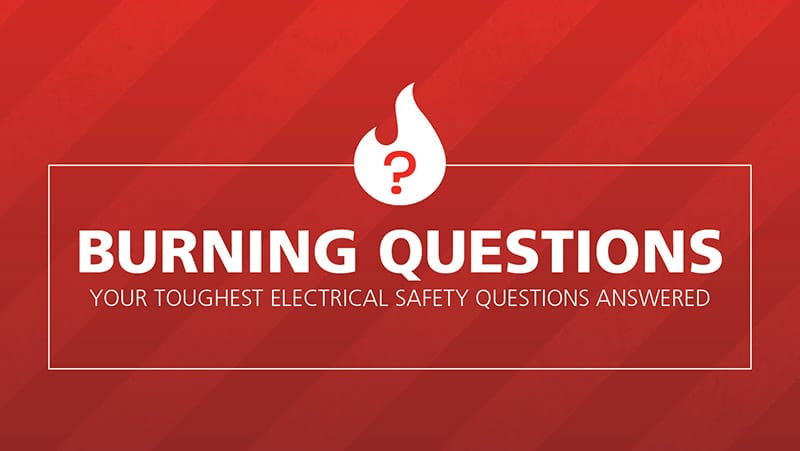One of our jobs at e-Hazard is to consult others concerning electrical safety requirements.
These requirements range from specific training required by OSHA to NFPA 70E®-compliant annual supervisory audit programs. We strive to answer these in-the-moment questions with one of our on-staff electrical experts.
A frequent question involves the concept of qualified, certified, and licensed electrical workers, which was covered in another one of our blog articles, So Many Electrical Safety Terms – What Do They Mean?
Now a similar question has been brought up often enough to warrant a more in-depth conversation. This question involves someone becoming low-voltage certified…so here we go!
What Do You Mean by Low Voltage?
When we look at the electrical and communications industry, an overlap exists involving the concept of “low voltage.”
The term low voltage in state licensure programs involves an individual working in the fire alarm, network, security and other similar industries. These “low voltage” licenses allow individuals holding such a license to perform construction work in the low voltage field in which he or she is licensed. For instance, in the state of Georgia, one can apply for licensing in the following categories: telecommunications, alarm, general, and unrestricted.
An unrestricted license (similar to a master’s license in other states) allows the one holding such a license to perform all of the functions of that license’s subcategories. Typically, these licenses limit the low-voltage contractor to installations of wiring systems that are less than 50 volts, and are typically more along the lines of 24 volt systems with power-limited power supplies (cat 2/3 wiring methods in the National Electrical Code). Also included in this area are fiber optic installations associated with the systems one is licensed to install.
In some states, one can hold a Master (Unrestricted) electrical license, allowing the contractor to work on voltages ranging from 50 volts and higher, but that same individual is not allowed to do any wiring on low voltage systems (those below 50 volts). This seems crazy, but who ever said that these things had to make logical sense?
For further information on why the magical 50-volt demarcation point, here is a good link from OSHA’s website describing some of the reasoning behind 50 volts versus some arbitrary voltage value.
Who Are You Talking To?
If we are talking to someone about becoming low-voltage licensed, we are discussing systems of 50 volts and less. But when discussing low voltage in the realm of OSHA and NFPA 70E® electrical safety, the voltage range instantly jumps to a discussion of 50-600 volts, and in many other countries, 50-1000 volts. Let’s see now… low voltage versus… hmmm…low voltage? Unfortunately, the answer is a resounding YES. It’s all according to the context and audience.
Low Voltage to a typical NFPA 70E® or Electrical Safety Professional is instantly associated with these ranges of 50-600 (or 1000) volts. Low Voltage to a State Licensure Board of potential licensees is never dealing with voltages above 50. In this case, sometimes Low Voltage is referred to as Extra Low Voltage.
Can I Get Low Voltage Certified?
One last clarification.
We sometimes get phone calls concerning the issue of becoming “low-voltage certified.” To reiterate a phrase I wrote in the blog referenced in the second paragraph above, certification is only as good as the body giving out the certification.
Some of these certifying bodies are well-respected in the industry, such as ETA (Electronics Technicians Association) for Voice over IP (VOIP), General Communications Technicians, and many others.
Another is BICSI, issuing certifications for a wide variety of low voltage categories, like network cabling installations (INST1, INSTC, INSTF, etc) and more advanced certifications like RCDD (Registered Communications Distribution Designer). BICSI offers a credentialing program for their many coverage areas, and these credentials often weigh heavily in contract negotiations.
Please take note: the e-Hazard Low Voltage class does not “certify” you to work on Low Voltage. Our class satisfies training requirements (as per your company Electrical Safety Program or OSHA or both), and each attendee receives a certificate of attendance in voltages ranging from 50-600 volts per OSHA guidance.
Remember, also, that if someone is BISCI- or ETA-certified, this does not necessarily mean that that individual or company is Low-Voltage Licensed by a state or county licensing board, nor does any certification mean that the individual is qualified.
Clear Communication!
If you are hiring a contractor, applying for a job, or planning an electrical or communication project at your facility, please make sure you are clear on the difference between (Extra) Low Voltage regarding network, security, fire alarm and similar wiring, versus Low Voltage when discussing OSHA or NFPA 70E® electrical safety.
Now, if you’re ever asked the question, “Are you working on low voltage?”, you’ll be able to answer the question clearly and confidently.


Thanks for posting this! Good stuff for low voltage installers to know, aloha!